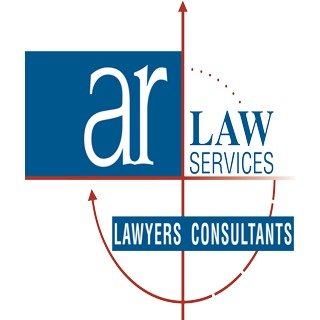Best Civil Rights Lawyers in Australia
Share your needs with us, get contacted by law firms.
Free. Takes 2 min.
Or refine your search by selecting a city:
List of the best lawyers in Australia
About Civil Rights Law in Australia
Civil rights in Australia are a fundamental aspect of its democratic society, designed to protect the rights and freedoms of individuals and ensure equality before the law. They encompass a wide range of rights, including freedom of speech, association, movement, and protection from discrimination. The Australian Constitution, along with various state and federal laws, safeguard these rights. However, unlike the United States, Australia does not have a Bill of Rights, so civil rights are largely governed by statutory and common law. Two significant acts are the Racial Discrimination Act 1975 and the Sex Discrimination Act 1984, which provide legal frameworks for combating discrimination.
Why You May Need a Lawyer
There are many situations where individuals might require legal help in civil rights matters in Australia. Common scenarios include experiencing workplace discrimination based on gender, race, or disability, facing unjust treatment by government authorities or law enforcement, or being involved in unlawful surveillance or privacy breaches. Legal assistance can also be crucial when dealing with issues of freedom of speech and assembly, particularly for activists and community organizers. A lawyer can provide the necessary guidance, negotiate settlements, or take legal action to protect your rights and achieve justice.
Local Laws Overview
Australia's civil rights laws are spread across federal, state, and territory legislation. Some key components include:
- The Racial Discrimination Act 1975, which aims to eliminate discrimination and promote equality before the law.
- The Sex Discrimination Act 1984, addressing gender discrimination and promoting gender equality.
- The Disability Discrimination Act 1992, designed to protect individuals from discrimination based on disabilities.
- Anti-discrimination legislation at the state and territory levels, which complements federal laws and address additional local needs.
- The Privacy Act 1988, safeguarding personal information and outlining privacy rights.
In addition to these, human rights are overseen by organizations such as the Australian Human Rights Commission, which plays a critical role in promoting and enforcing civil rights.
Frequently Asked Questions
What are civil rights?
Civil rights are the basic rights and freedoms that belong to every person, designed to protect individuals against discrimination and unfair treatment.
How are civil rights protected in Australia?
Civil rights in Australia are protected by a combination of federal and state laws, as well as oversight by bodies like the Australian Human Rights Commission.
Can I challenge a governmental decision that affects my civil rights?
Yes, you can challenge governmental decisions through legal action or by complaint to a relevant commission or ombudsman, depending on the issue.
What should I do if I experience discrimination?
Firstly, document all instances of discrimination. Then, consider lodging a complaint with the relevant anti-discrimination body or seek legal advice.
Can civil rights protections vary between states?
Yes, while there are overarching federal laws, each state and territory may have its own additional laws that can offer different levels of protection.
How do I file a complaint with the Australian Human Rights Commission?
You can file a complaint online, by mail, or over the phone. It's important to provide detailed information and any supporting evidence.
Is freedom of speech absolute in Australia?
While freedom of speech is a key right, it is not absolute. There are restrictions, such as laws against hate speech or defamation.
What role does the Australian Constitution play in civil rights?
The Australian Constitution provides some implicit rights and protections, but specific civil rights are generally governed by legislation and case law.
Can I access legal aid for civil rights issues?
In certain circumstances, you may be eligible for legal aid. It's best to contact your local legal aid office to see if your situation qualifies.
How can I get involved in promoting civil rights?
You can volunteer with relevant organizations, participate in advocacy groups, or engage in community education efforts.
Additional Resources
- Australian Human Rights Commission: Provides information and handles complaints related to discrimination and human rights.
- Legal Aid Agencies: Each state and territory has services offering legal assistance.
- Community Legal Centres: Provide free legal advice and services to individuals, often focusing on civil rights issues.
- Australian Law Reform Commission: A source of information on legal reforms, some of which may affect civil rights.
Next Steps
If you believe your civil rights have been violated and you need legal assistance, start by documenting all relevant incidents and evidence. This could include dates, witness accounts, official documents, and any communication related to the issue. Seek advice from a civil rights lawyer or contact a community legal centre for initial guidance. Consider lodging a formal complaint with an appropriate body if applicable. Legal aid services may be available if cost is a concern. Act promptly to ensure all legal options remain open to you.
Lawzana helps you find the best lawyers and law firms in Australia through a curated and pre-screened list of qualified legal professionals. Our platform offers rankings and detailed profiles of attorneys and law firms, allowing you to compare based on practice areas, including Civil Rights, experience, and client feedback.
Each profile includes a description of the firm's areas of practice, client reviews, team members and partners, year of establishment, spoken languages, office locations, contact information, social media presence, and any published articles or resources. Most firms on our platform speak English and are experienced in both local and international legal matters.
Get a quote from top-rated law firms in Australia — quickly, securely, and without unnecessary hassle.
Disclaimer:
The information provided on this page is for general informational purposes only and does not constitute legal advice. While we strive to ensure the accuracy and relevance of the content, legal information may change over time, and interpretations of the law can vary. You should always consult with a qualified legal professional for advice specific to your situation.
We disclaim all liability for actions taken or not taken based on the content of this page. If you believe any information is incorrect or outdated, please contact us, and we will review and update it where appropriate.
Browse civil rights law firms by city in Australia
Refine your search by selecting a city.









